This article was co-authored by Rebecca Ward, LMFT, SEP, PCC, MA and by wikiHow staff writer, Glenn Carreau. Rebecca A. Ward, LMFT, SEP, PCC is the Founder of the Iris Institute, a San Francisco, California-based business focusing on using somatic expertise to teach individuals and groups the skills to deal with dilemmas using interventions, including her own Original Blueprint® method. Ms. Ward specializes in treating stress, anxiety, depression, and trauma. She is a Licensed Marriage and Family Therapist (LMFT), a Somatic Experiencing® Practitioner (SEP), and a Professional Certified Coach (PCC) accredited by the International Coach Federation (ICF). Rebecca holds an MA in Clinical Mental Health Counseling from Marymount University and an MA in Organizational Leadership from The George Washington University.
There are 9 references cited in this article, which can be found at the bottom of the page.
wikiHow marks an article as reader-approved once it receives enough positive feedback. This article received 26 testimonials and 92% of readers who voted found it helpful, earning it our reader-approved status.
This article has been viewed 2,426,178 times.
Panic attacks are feelings of intense anxiety, often characterized by rapid heartbeat, shaking, breathlessness, nausea, and dizziness. A little anxiety sometimes is normal, but a full-blown panic attack can feel overwhelming. Fortunately, there are many simple calming exercises you can do to get your symptoms under control quickly. Keep reading for a full list of ways to calm yourself during an anxiety attack and prevent more attacks in the future.
Things You Should Know
- When you feel panicked, take deep breaths and reassure yourself. Sit in a quiet spot and use grounding exercises to clear your mind.
- Repeat a soothing mantra to yourself and challenge your unrealistic fears. Picture yourself somewhere happy and listen to calm music.
- Relax your muscles and go for a short walk. If you need outside help, talk to a friend or seek therapy, and ask a doctor about medication.
Steps
Say Goodbye to Anxiety with this Expert Series
Expert Q&A
-
QuestionHow can I get my anxiety under control?
 Liana Georgoulis, PsyDDr. Liana Georgoulis is a Licensed Clinical Psychologist with over 10 years of experience, and is now the Clinical Director at Coast Psychological Services in Los Angeles, California. She received her Doctor of Psychology from Pepperdine University in 2009. Her practice provides cognitive behavioral therapy and other evidence-based therapies for adolescents, adults, and couples.
Liana Georgoulis, PsyDDr. Liana Georgoulis is a Licensed Clinical Psychologist with over 10 years of experience, and is now the Clinical Director at Coast Psychological Services in Los Angeles, California. She received her Doctor of Psychology from Pepperdine University in 2009. Her practice provides cognitive behavioral therapy and other evidence-based therapies for adolescents, adults, and couples.
Licensed Psychologist Most people experience anxiety when they're stressed out or overwhelmed, so it's perfectly natural to get anxious from time to time. If you get anxious for no reason or you feel like your anxiety is interfering with your ability to live a happy, productive life, you may want to consider reaching out to a therapist or a mental health professional. If you aren't getting professional help, you can still manage your anxiety. Meditating, living a healthy lifestyle, and managing your stress will all help you cope.
Most people experience anxiety when they're stressed out or overwhelmed, so it's perfectly natural to get anxious from time to time. If you get anxious for no reason or you feel like your anxiety is interfering with your ability to live a happy, productive life, you may want to consider reaching out to a therapist or a mental health professional. If you aren't getting professional help, you can still manage your anxiety. Meditating, living a healthy lifestyle, and managing your stress will all help you cope. -
QuestionHow do you stop physical anxiety symptoms?
 Rebecca Ward, LMFT, SEP, PCC, MARebecca A. Ward, LMFT, SEP, PCC is the Founder of the Iris Institute, a San Francisco, California-based business focusing on using somatic expertise to teach individuals and groups the skills to deal with dilemmas using interventions, including her own Original Blueprint® method. Ms. Ward specializes in treating stress, anxiety, depression, and trauma. She is a Licensed Marriage and Family Therapist (LMFT), a Somatic Experiencing® Practitioner (SEP), and a Professional Certified Coach (PCC) accredited by the International Coach Federation (ICF). Rebecca holds an MA in Clinical Mental Health Counseling from Marymount University and an MA in Organizational Leadership from The George Washington University.
Rebecca Ward, LMFT, SEP, PCC, MARebecca A. Ward, LMFT, SEP, PCC is the Founder of the Iris Institute, a San Francisco, California-based business focusing on using somatic expertise to teach individuals and groups the skills to deal with dilemmas using interventions, including her own Original Blueprint® method. Ms. Ward specializes in treating stress, anxiety, depression, and trauma. She is a Licensed Marriage and Family Therapist (LMFT), a Somatic Experiencing® Practitioner (SEP), and a Professional Certified Coach (PCC) accredited by the International Coach Federation (ICF). Rebecca holds an MA in Clinical Mental Health Counseling from Marymount University and an MA in Organizational Leadership from The George Washington University.
Licensed Therapist There are a few ways to do this. One way is to put one hand on top of your heart and one hand on top of your belly to focus your attention on your breathing. This will help you naturally get a a hold of your breathing and make it easier to process the anxiety. If you can get moving, exercise can also cull some of the symptoms of anxiety. Being mindful and focusing on the present is another way to trick your body into calming down.
There are a few ways to do this. One way is to put one hand on top of your heart and one hand on top of your belly to focus your attention on your breathing. This will help you naturally get a a hold of your breathing and make it easier to process the anxiety. If you can get moving, exercise can also cull some of the symptoms of anxiety. Being mindful and focusing on the present is another way to trick your body into calming down. -
QuestionWhat if you're having a panic attack while you're home alone?
 Tracy Carver, PhDDr. Tracy Carver is an award-winning Licensed Psychologist based in Austin, Texas. Dr. Carver specializes in counseling for issues related to self-esteem, anxiety, depression, and psychedelic integration. She holds a BS in Psychology from Virginia Commonwealth University, an MA in Educational Psychology, and a Ph.D. in Counseling Psychology from The University of Texas at Austin. Dr. Carver also completed an internship in Clinical Psychology through Harvard University Medical School. She was voted one of the Best Mental Health Professionals in Austin for four years in a row by Austin Fit Magazine. Dr. Carver has been featured in Austin Monthly, Austin Woman Magazine, Life in Travis Heights, and KVUE (the Austin affiliate for ABC News).
Tracy Carver, PhDDr. Tracy Carver is an award-winning Licensed Psychologist based in Austin, Texas. Dr. Carver specializes in counseling for issues related to self-esteem, anxiety, depression, and psychedelic integration. She holds a BS in Psychology from Virginia Commonwealth University, an MA in Educational Psychology, and a Ph.D. in Counseling Psychology from The University of Texas at Austin. Dr. Carver also completed an internship in Clinical Psychology through Harvard University Medical School. She was voted one of the Best Mental Health Professionals in Austin for four years in a row by Austin Fit Magazine. Dr. Carver has been featured in Austin Monthly, Austin Woman Magazine, Life in Travis Heights, and KVUE (the Austin affiliate for ABC News).
Licensed Psychologist Having a panic attack while you're alone can be scary, but remind yourself that the symptoms you're feeling are caused by anxiety and aren't actually dangerous, and that they will soon pass. Try a box breathing technique, where you inhale for 4 counts, hold for 4 counts, exhale for 4 counts, and hold for 4 more counts.
Having a panic attack while you're alone can be scary, but remind yourself that the symptoms you're feeling are caused by anxiety and aren't actually dangerous, and that they will soon pass. Try a box breathing technique, where you inhale for 4 counts, hold for 4 counts, exhale for 4 counts, and hold for 4 more counts.
References
- ↑ https://www.betterhealth.vic.gov.au/health/conditionsandtreatments/panic-attack
- ↑ https://www.helpguide.org/articles/stress/relaxation-techniques-for-stress-relief.htm
- ↑ https://www.helpguide.org/articles/anxiety/panic-attacks-and-panic-disorders.htm
- ↑ https://www.betterhealth.vic.gov.au/health/conditionsandtreatments/panic-attack
- ↑ https://ibpf.org/articles/9-tips-to-help-you-get-through-a-panic-attack/
- ↑ https://psychcentral.com/anxiety/affirmations-for-anxiety
- ↑ https://psychcentral.com/anxiety/how-to-reduce-anxiety-quickly
- ↑ https://www.helpguide.org/articles/stress/relaxation-techniques-for-stress-relief.htm
- ↑ https://www.ncbi.nlm.nih.gov/pmc/articles/PMC6007527/
- ↑ https://www.helpguide.org/articles/stress/relaxation-techniques-for-stress-relief.htm
- ↑ https://www.urmc.rochester.edu/encyclopedia/content.aspx?ContentID=4552&ContentTypeID=1
- ↑ https://www.unr.edu/counseling/virtual-relaxation-room/releasing-stress-through-the-power-of-music
- ↑ https://www.helpguide.org/articles/stress/relaxation-techniques-for-stress-relief.htm
- ↑ https://ibpf.org/articles/9-tips-to-help-you-get-through-a-panic-attack/
- ↑ https://www.helpguide.org/articles/anxiety/panic-attacks-and-panic-disorders.htm
- ↑ https://ibpf.org/articles/9-tips-to-help-you-get-through-a-panic-attack/
About This Article
To quickly calm yourself during an anxiety attack, think about five things you see, four things you can touch, three things you hear, two things you smell, and one thing you can taste. Focus on breathing slowly and deeply until you feel more calm and relaxed. For advice from our Medical reviewer on how to identify a panic attack or take steps to prevent them from happening in the future, scroll down!
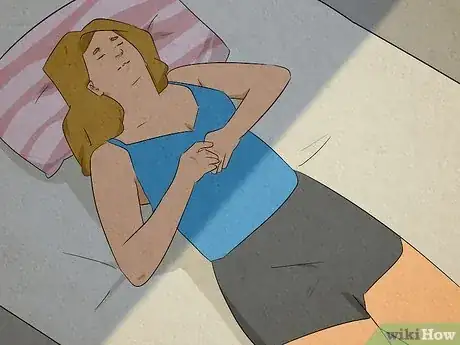
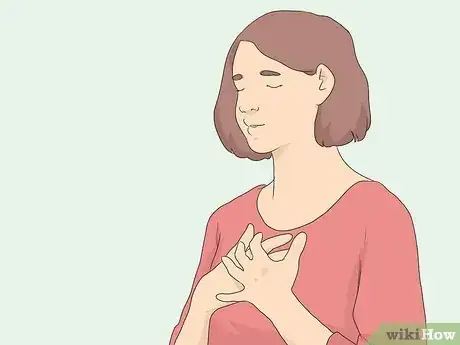
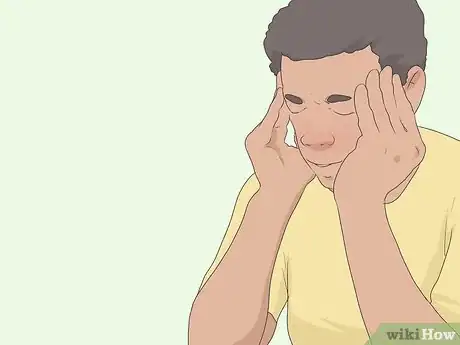
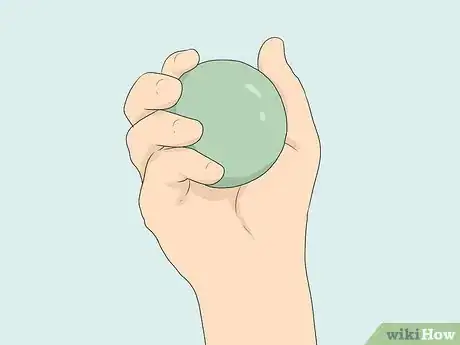
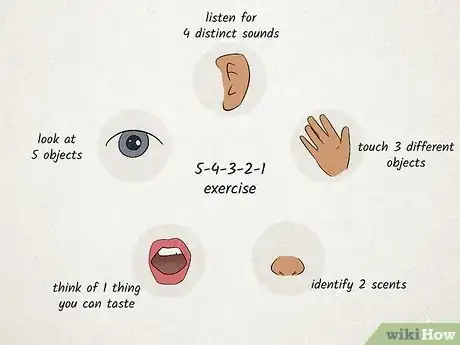
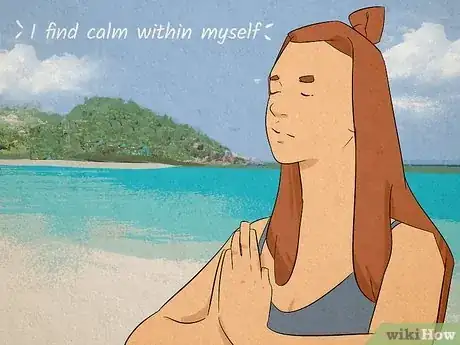

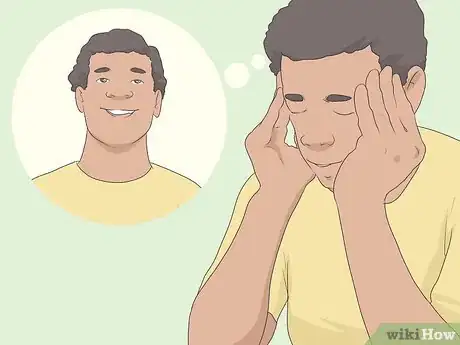
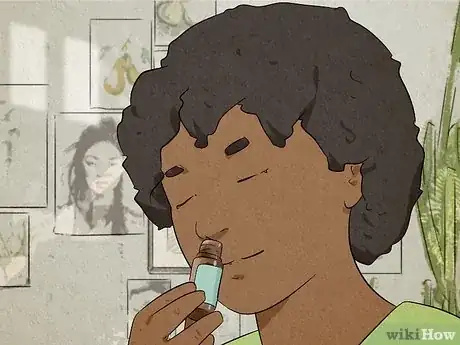
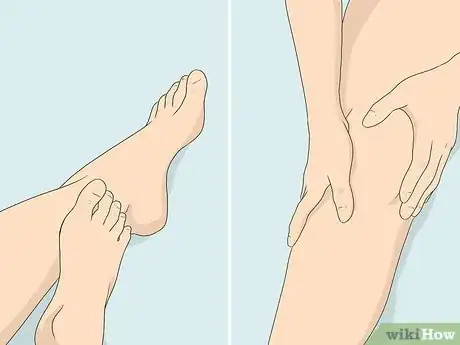
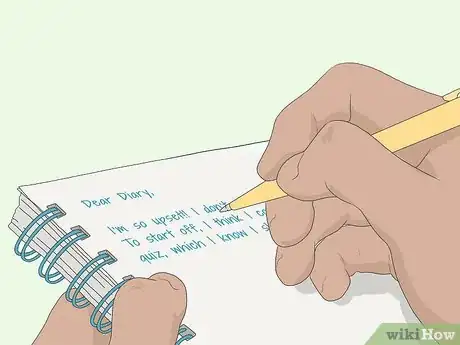
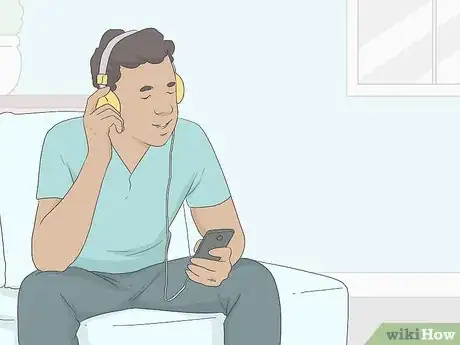

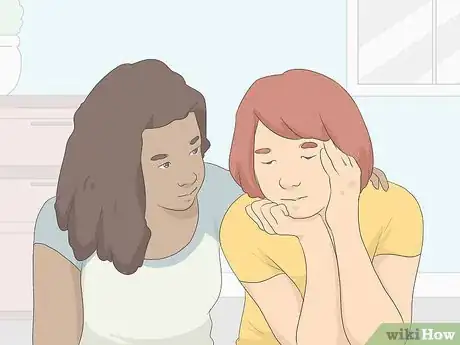

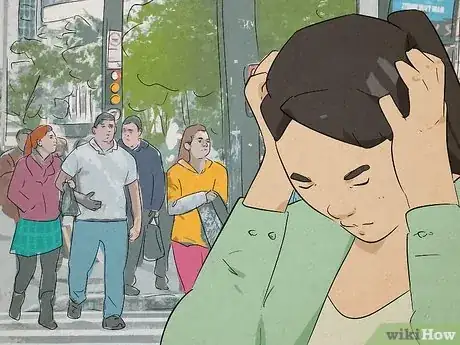



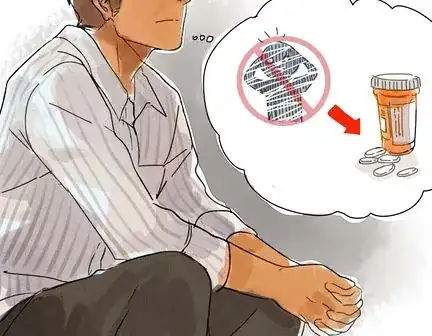

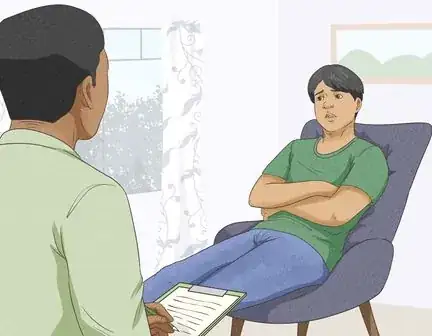



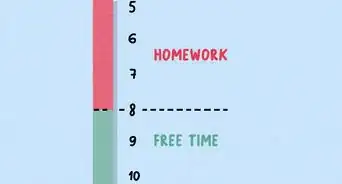
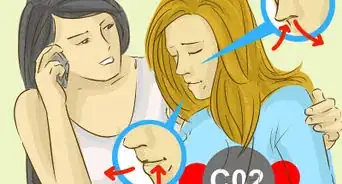
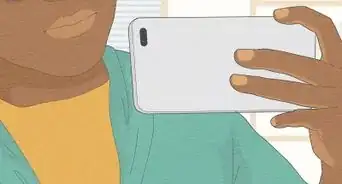
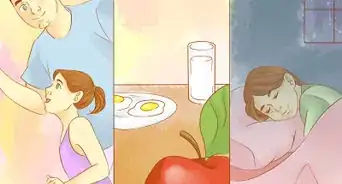

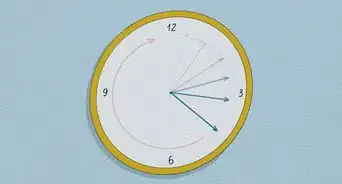
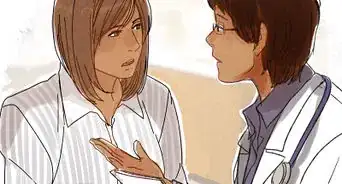
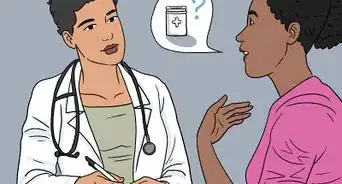
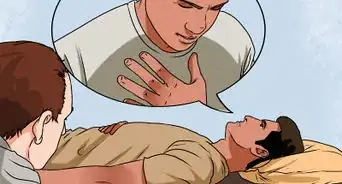












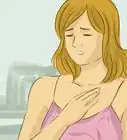
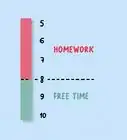



































Medical Disclaimer
The content of this article is not intended to be a substitute for professional medical advice, examination, diagnosis, or treatment. You should always contact your doctor or other qualified healthcare professional before starting, changing, or stopping any kind of health treatment.
Read More...